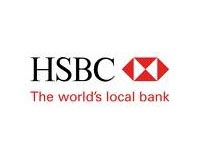| . |  |
. |
Shanghai (AFP) May 11, 2009 Chinese banks significantly cut their new loans in April after lending record amounts in the first quarter in response to government calls to support the economy, the central bank said Monday. Banks extended 591.8 billion yuan (86.7 billion dollars) last month, the People's Bank of China said in a statement, less than a third of March's monthly record of 1.890 trillion yuan. However, the loan growth was still "more than enough to support economic recovery," HSBC economist Qu Hongbin told Dow Jones Newswires. He called it "a slowdown, but it's a welcome slowdown," given the gigantic amounts extended in the first quarter, adding new loans would likely stay in the 300 billion to 500 billion yuan range until year end. New loans stood 1.070 trillion yuan in February and 1.620 trillion in January, according to bank figures. Chinese banks lent a total of 4.580 trillion yuan in the first quarter, close to the target of five trillion yuan set by Beijing as the minimum for the whole year. Chinese banks are forecast to extend at least eight trillion yuan (1.2 trillion dollars) in new loans this year, state media quoted Cai Esheng, vice chairman of the China Banking Regulatory Commission, as saying last month. Cai had also warned of "uncertainties" regarding the banks' ability to fend off risks while aggressively lending.
earlier related report The consumer price index, or CPI, fell for the third month in a row -- down 1.5 percent from a year ago, the National Bureau of Statistics (NBS) said -- but it was unlikely to enter a devastating downward spiral, they argued. "While headline CPI will likely continue to fall in the coming months and is expected to average minus 0.5 percent in 2009, the worst of deflation appears already behind us," said Qian Wang, an economist at JP Morgan. Consumer prices are keenly watched as they are among the most reliable indicators of activity in China, and recent declines highlight the impact of the global slowdown on the country's trade-dependent economy. The World Bank has forecast the Chinese economy, the world's third-largest, will expand by 6.5 percent this year, the lowest rate of growth since 1990. Compared with March, the CPI, the main gauge of inflation, was down 0.2 percent, the NBS said in a statement. But Xu Jian, an economist at China International Capital Corporation, pointed to this figure as a sign of encouragement, as it had shrunk in comparison to a 0.3 percent fall from February to March. He said that a four-trillion-yuan (584-billion-dollar) stimulus announced by China last year had helped boost domestic demand, which was why prices would find support and added that CPI would average minus 0.3 percent in all of 2009. But he cautioned that prices would not reach positive territory in the short term. "The overcapacity problem (in industries) is still very serious... and against this background, I think that the prices, in the short term, will stay in negative territory," Xu said. CPI dropped 1.6 percent in February, its sharpest fall since it fell nearly two percent during the Asian financial crisis a decade ago, HSBC's economist Qu Hongbin said in Hong Kong. "It will last for at least another several months," he said, adding deflation was mainly due to external factors such as falling commodity costs, which limit policymakers' ability to shore up prices. Consumer prices in March were down 1.2 percent from a year earlier, according to previously released data. In the first four months of the year, the consumer price index fell 0.8 percent from the same period in 2008, according to the bureau. Deflation is a situation when a continued fall in prices encourages people to postpone buying products as they expect to get a better price later, but that in turn only serves to further slow the economy. Wang of JP Morgan said government moves to increase gasoline, diesel and water prices had had some effect in countering deflationary pressure. "There (also) appears to be expectations that airline and railway ticket prices could be increased soon. We expect reforms of the electricity pricing mechanism, which could result in higher residential electricity bills." Qu said the focus would remain on how to enable the economy to recover as soon as possible and further boost domestic consumption and investment, to offset declines in foreign demand. In March, consumer prices were down 1.2 percent from a year earlier, according to previously released data. In the first four months of the year, the consumer price index fell 0.8 percent from the same period in 2008, according to the bureau. Share This Article With Planet Earth
Related Links The Economy
 HSBC says profits rise, sees 'robust' growth in China
HSBC says profits rise, sees 'robust' growth in ChinaLondon (AFP) May 11, 2009 Global banking giant HSBC said on Monday that profits were rising strongly on the basis of first-quarter data and it saw "robust" growth in China and India, while remaining cautious for the year. First-quarter pre-tax profits were "well ahead" of the figure for the same period of last year, the bank said, bouncing back despite the world financial crisis. The group gave a cautious outlook ... read more |
|
| The content herein, unless otherwise known to be public domain, are Copyright 1995-2009 - SpaceDaily. AFP and UPI Wire Stories are copyright Agence France-Presse and United Press International. ESA Portal Reports are copyright European Space Agency. All NASA sourced material is public domain. Additional copyrights may apply in whole or part to other bona fide parties. Advertising does not imply endorsement,agreement or approval of any opinions, statements or information provided by SpaceDaily on any Web page published or hosted by SpaceDaily. Privacy Statement |